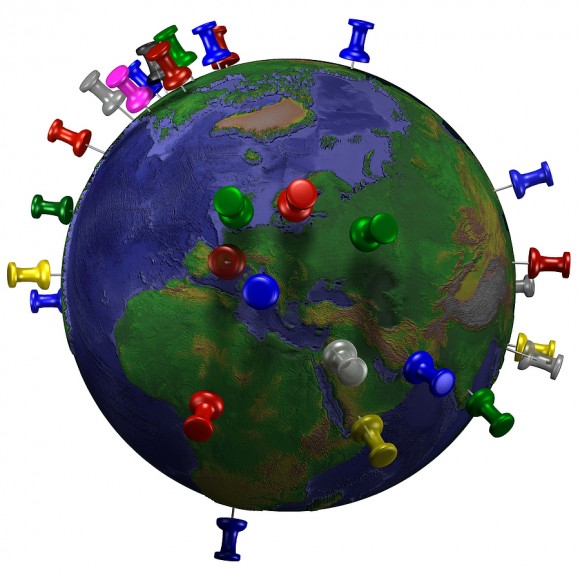Political risk insurance against conflict or breach of contract has become a key factor for investors seeking higher returns in developing markets in Africa, Asia and the Middle East.
Indeed, the euro zone economic crisis and low returns in other advanced economies are forcing investors to look for more lucrative places to park their money.
“We are meeting investors that are finding their own markets quite constrained and are looking for new places to maintain their business activity at a higher level,” said Michel Wormser, chief operating officer of the World Bank’s Multilateral Investment Guarantee Agency (MIGA).
The newfound interest in developing countries is also being marked by a shift in expectations about these new investment frontiers, which have been growing at a rapid clip for more than a decade.
Political changes in the Middle East, fewer long-running conflicts in Africa and less tolerance for leaders who cling to power, have also added to the interest.
MIGA’s mission is to promote foreign direct investment into developing countries by offering political risk guarantees to the private sector.
Record business for MIGA of $2.7 billion in fiscal year 2012 ending June 30, a 27 percent year-on-year increase over 2011, illustrates the growing demand for political risk cover, Wormser said.
Some 22 percent of that business came from emerging economies such as Brazil, China, South Korea, Malaysia, Singapore and South Africa.
Demand for guarantees has been especially strong for large infrastructure development projects in countries such as Ivory Coast, Senegal, Kenya, Rwanda, Ghana and Pakistan, he added.
Last month MIGA issued guarantees of $148.5 million to cover an equity investment by Korea Water Resources Corp and Daewoo Engineering to develop a 147 megawatt hydro power plant near Islamabad, Pakistan.
“Countries are increasingly understanding that aid flows are going to be limited, that you can’t build infrastructure based on aid flows, that you need private financing,” Wormser said.
China has sharply increased its stake in Africa, an interest that began with the continent’s natural resource wealth but is now expanding to manufacturing and services. Last week Beijing doubled its pledges to African countries to $20 billion over the next three years.
“We are seeing Africa as a major growth area for investment. Investors going to Africa today are different from the ones that used to go there, more sensitive to risks, and these new investors are much more demanding of the sort of products we are offering,” Wormser said.
European banks have long been the main channel for foreign money flows into emerging economies but are now withdrawing as they struggle with capital constraints.
“Today if you’re an investor in Europe, you’re going to see your bank about an idea for an investment in an emerging economy and it will be very hard for the credit committee of that bank to get convinced at a time of capital constraint that they should go and support that investment,” Wormser said. “Therefore, the bank is going to demand much more mitigation of risk in order to make the proposal viable.”
While insurance has traditionally covered political violence and wars, expropriation of assets and nationalization, Wormser said innovation is becoming vital to attract investment into these developing markets.
For example, last year MIGA issued a guarantee for $99 million to support a US dollar cross-currency swap arrangement between South Africa’s Standard Bank and Senegal’s government. The guarantee provides 10-year cover to Standard Bank in case Senegal fails to honor its obligations under the swap.
“This sort of guarantee is tremendously helpful in reducing the risk of mismatch between foreign currency and local currency earnings,” said Wormser.
New oil and gas finds along East Africa and in Mauritania on Africa’s West Coast have sparked investor interest, said Wormser.
They are also eyeing opportunities in Myanmar, the young Asian democracy emerging from half a century of military rule and just starting to open up its resource-rich economy.
Sanctions against Myanmar have only recently been eased by the European Union and the United States, prompting a flood of investment interest.
(Editing by Diane Craft)
Topics Europe
Was this article valuable?
Here are more articles you may enjoy.



 AIG’s Zaffino: Outcomes From AI Use Went From ‘Aspirational’ to ‘Beyond Expectations’
AIG’s Zaffino: Outcomes From AI Use Went From ‘Aspirational’ to ‘Beyond Expectations’  Viewpoint: Runoff Specialists Have Evolved Into Key Strategic Partners for Insurers
Viewpoint: Runoff Specialists Have Evolved Into Key Strategic Partners for Insurers  Experian Launches Insurance Marketplace App on ChatGPT
Experian Launches Insurance Marketplace App on ChatGPT  Insurance Broker Stocks Sink as AI App Sparks Disruption Fears
Insurance Broker Stocks Sink as AI App Sparks Disruption Fears 

